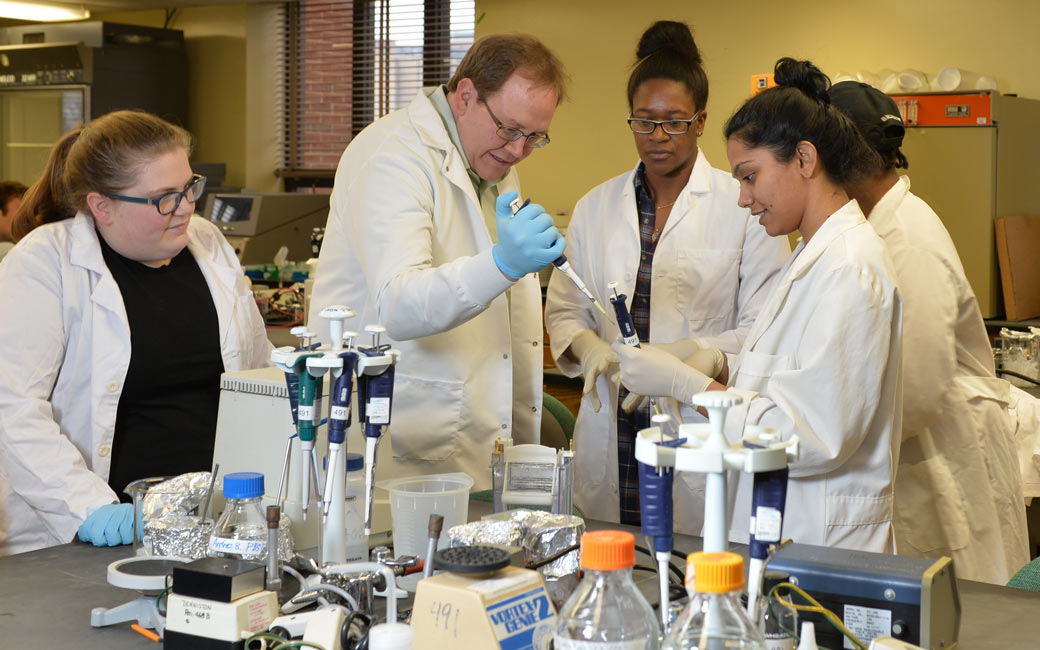Matthew Hemm
Associate Professor, Department of Biological Sciences

Students studying biology at Towson University have many rich opportunities to conduct research, which is critical in developing marketable skills and the scientific thinking required for further study in the sciences.
Sometimes, they even produce publishable results.
“ Conducting research gives students the opportunity to make some exciting scientific discoveries. ”
More than 200 students have performed experiments in Matthew Hemm’s Molecular Biology Laboratory class. This work, funded by the National Science Foundation, has led to the identification of at least 15 new small proteins. A publication describing the findings will list all students who participated in the research as authors.
Conducting research, says Hemm, helps students “prepare for a career in laboratory research while at the same time giving them the opportunity to make some exciting scientific discoveries.”
And those discoveries go on their resumes and graduate school applications.
Students can also continue their research in Hemm’s lab, working to characterize the proteins identified in the Biology 410 class. In addition to doing research, these students compose and submit research grants and produce poster presentations to share their results—experiences that are exactly what prospective employers and graduate admissions programs look for when reviewing a candidate’s credentials.
Hemm is a recipient of the Innovation in Teaching Award from TU’s Office of Academic Innovation and is currently working with other faculty members to integrate research into undergraduate laboratory classes.
OTHER research LABS
Interested in Research?
Students conduct research as part of laboratory classes with the following biology and chemistry professors:
BIOCHEMISTRY LAB WITH PROFESSOR JOHN WELDON
Students in the Biochemistry Laboratory course (CHEM 356) express, purify, and analyze a bacterial protein toxin to identify structural and functional changes resulting from mutations.
CELL BIOLOGY LAB WITH PROFESSOR MICHELLE SNYDER
Students in the Cell Biology Laboratory course apply cell biological techniques to ask questions related to an ongoing research project involving the social amoeba Dictyostelium discoideum and its bacterial prey as a model for host-pathogen interactions. The project involves identification and characterization of bacterial mutations that allow bacteria to avoid killing by amoebae, and that likewise may be involved in bacterial virulence mechanisms that promote bacterial evasion of human immune cells.
Advanced Genetics Lab with Professor Brian Masters
In the Genetics Laboratory course (BIOL 312) students are trained in cutting-edge techniques, such as quantitative PCR and next-generation DNA sequencing, and then use those techniques to explore research questions. For example, they determine what species of amphibians are present in a pond by analyzing the DNA in a water sample from that pond. Students are trained in those techniques needed in modern laboratories while also using sophisticated approaches to determine biodiversity and the impacts of human activities.